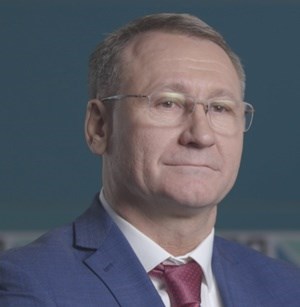21 January 2022 - In mid-December 2021, leading Russian premixer Megamix LLC completed the acquisition of the poultry assets of Yourma Agroholding, a large poultry meat producer in the Chuvash Republic of Russia.
The assets included parent stocks, an incubation system with a capacity of 42 million eggs per year, commercial feedlots, a slaughterhouse processing 6,000 heads/hour, a manufacturing facility for ready-to-cook poultry products, a feed mill with a production capacity of 20,000 tonnes, grain crop land assets along with storage facilities and 34 branded grocery stores.
The noteworthy development associated with this deal, however, is that Megamix has now become a fully vertically integrated business, creating new opportunities for the Russian premix company.
|
|
Discussing some of the advantages, Megamix’s General Director, Vasiliy Frizen, pointed out that in recent years, and with the proliferation of feed additives in Russia, his company has become more specialised in the area of poultry nutrition and production, as well as in the domain of providing nutritional advice. Today, Megamix estimates its Russian broiler premix market share at about 38% and its total premix market share in Russia at 32%. Thus, acquiring Yourma fits in with the company’s strategy to develop in this area and to make its product offering and nutritional recommendations more precise and effective. Thanks to Yourma, Frizen said that Megamix is now able to test its products in larger commercial production set-up, enabling the company to gain a better picture. |
What’s Next?
Arseniy Vlasov, Deputy General Director for Business Development and Co-owner looked at the next steps of the vertical integration.
According to Vlasov, there are three major plans Megamix wants to implement, starting with the building of a large facility to produce up to 60 million eggs annually. He said that Megamix will be benefitting from government programme funds amounting to 3.2 billion rubles (approximately $41 million) for this project.
“This will help protect ourselves from various risk factors and allow us to become fully independent producers,” Vlasov said. “We purchase 11 million eggs per year from abroad, and now we'll be able to produce 60 million eggs. Half of them will be used for our own needs and the other half will be used for marketing sales.”
Megamix’s second project is to increase its cropland assets up to 40,000 hectares by 2024.
“The world is facing a shortage of protein, so we would like to work on growing more high-protein crops and legumes. Our goal is to develop some more products for efficient substitution of soybeans,” he commented.
Vitamin E Production
The third project is pursuing the plan to become a leading domestic supplier of vitamin E 60% adsorbate and vitamin E 50% adsorbate in the Russian market – a project first announced in October 2019.
At the time, Megamix said it would be purchasing vitamin E oil from BASF’s Ludwigshafen plant in Germany, and that the nameplate production capacity of this facility would be 12,000 tonnes/year.
Frizen confirmed that the project is up and running. It started with pilot-scale production of 300-400 tonnes/year and reached 2,000 tonnes/year in 2021.
“The launch of this project was very successful, and we thank BASF,” he commented.
Frizen added that the target of 12,000 tonnes/year is a 10-year project but stressed that 2,000 tonnes/year is already a very large volume for the Russian market because, according to the company’s estimates, the total potential of the Russian market for vitamin E is about 4,000 to 5000 tonnes.
“We are currently working on registrations. However, we are not yet ready to announce in which regions and countries,” Frizen said.
|
Vlasov also said that Megamix is planning to produce vitamin A, vitamin B12, folic acid, biotin and probably some other additives in the future. Premix and Compound Feed Besides these three projects, Megamix continues to invest in its other production facilities. The company operates two premix plants in Volgograd and Lipetsk. Their total annual production capacity is 180,000 tonnes. The company also has three feed mills: one in Moscow, another in Volgograd which is not yet completely operational, and the recently acquired Yourma feed mill. |
|
Vlasov said Megamix’s total compound feed production was about 180,000 tonnes in 2021. And, after upgrades and new granulating machine and other equipment installations, the plan is to reach 300,000 tonnes in 2022. In the longer-term, Vlasov said, the plan is to reach 500,000 tonnes by 2025.
Growth and Challenges
Frizen went on to say that, besides knowhow, high production capacities as well as automated processes are also crucial for survival in the Russian animal nutrition market.
A few years ago, when asked by German journalists how the Russian market may evolve, Frizen said that that of the 20 major market players, less than half would continue to be present on the Russian market in the future. These will be the companies having invested in their capacities and Megamix will be one of them.
“We continue to be a leader in the Russian market,” he stated, estimating his company’s business growth at +12% in 2020. 2021 was of course another story with a more challenging global market due to supply chain disruptions, higher input prices, etc. Megamix’s growth last year is estimated at 1% with annual revenue estimated at about $200 million (preliminary estimates).
“Megamix has been in the market for 23 years already. We have survived three global financial crises during this time,” Frizen said. “So, we are used to dealing with the various challenges in the market. We always have these.”
“And our goal for the current year 2022 is to grow at least by 23%, but this is also a preliminary figure,” he stressed.
With regard to the ongoing supply chain disruptions and difficulties the market is experiencing in sourcing some feed ingredients, Megamix said it has not experienced any major challenges.
“We always keep safety stocks for critical ingredients. Besides, our relationships with global suppliers are very good, so our adjustment to the current crisis was quite smooth,” Frizen said. “Our quality management also involves constant sourcing; we are continuously looking for new supply sources. It doesn't matter what the market situation is, we are always in search for new suppliers, new products. We analyse changes on the market.”
Rosselhoznadzor’s Feed Additive Bans
In the autumn of 2021, Russian veterinary watchdog Rosselhoznadzor expanded the list of European countries that are banned from exporting feed additives, while also gradually expanding the list of European facilities granted temporary permission to continue supplies. In this context, the Russian meat industry again expressed growing concern over the stability of the domestic feed additives market, especially in light of the global supply disruptions.
In Megamix’s opinion, the actions taken by Rosselhoznadzor were well-founded even if this sparked concerns for some of the buyers in the Russian market.
“What Rosselhoznadzor did was perform an inventory of all countries and of all feed additives that are supplied in Russia and analysed them. In some cases, inconsistencies were spotted between labelled compositions and the actual compositions,” Frizen said.
“However, Rosselhoznadzor quickly realised which countries and which producers ought not be closed completely. So, exceptions were made for some feed additives and for some producers… Some producers received temporary permissions and registrations,” he added, stressing that the impact of these bans on Megamix’s operations was minimal.
New Antibiotic Rules
The Russian government has supported a bill aimed at tightening control over the use of antibiotics in animal feed production. It is designed to prohibit farmers from adding antibiotics to feed and the sale of feed containing antibiotics in the absence of a special license or a prescription. The new rules are due to come into force on 1 September 2022.
When asked about the new rules, Frizen claimed: “I was very happy to hear this news because I had already anticipated this situation,” illustrating his point by saying Megamix had already been supporting this trend by producing feed without antibiotics.
The Lipetsk premix plant is divided into two separate automated production lines: a red one using antibiotics, and a green line not using them at all, he said.
“And we have started using this philosophy at our feed mills as well. It helps us regulate production flows,” Frizen said. “It's very important and it will be much more important in the future. More and more countries are choosing to switch to meat produced without antibiotics and without any harmful ingredients. Our government has supported this initiative and at Megamix, we are ready for these changes.”


 Arseniy Vlasov
Arseniy Vlasov

